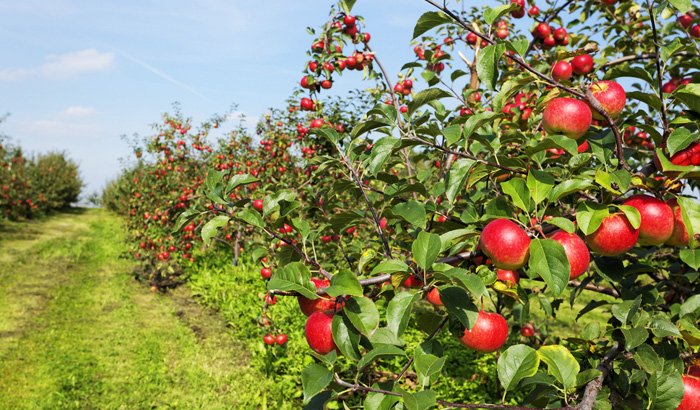Jahangeer Ganaie
Srinagar, Feb 27: The government is set to produce the quality high density plantation material of 12 fruits in Jammu and Kashmir.
Director Horticulture Kashmir Gh Rasool Mir told news agency—Kashmir News Observer (KNO) that with the introduction of the High-Density Plantation (HDP) system and production of quality planting material, the government is set to revolutionize its fruit industry.
“High density orchards have proved very beneficial for the people of Jammu and Kashmir but the plantation material being brought to J&K from Europe isn’t enough to cater to the demand,” he said.
He said that the government has decided to produce planting material of 12 fruits in J&K and in next five years J&K will become a self-reliant bio-economy by harnessing the economic potential of its diversified fruit crops.
He said that the 12 fruits of which plantation material will be produced here include apple, pear, cherry, peach, dragon fruit, almond, walnut, Kiwi, mangro, lichi, citrus and gauva.
For all these high density plantations, a scheme is in progress and now planting material of all these fruits will be produced here, Mir said.
He said that this year the government is importing 15.6 lakh root stock from Europe and it is expected to reach here in the first week of March.
He said that mother orchards are being developed and in this regard 390 hectare of nurseries in public and private sectors are being developed that will help in producing material here
According to him, people developing nurseries under private sector will be produced subsidies from 50 to 80 percent so as to encourage people to come in this stage.
Officials of the department said that the Department of Horticulture, in collaboration with Sher-e-Kashmir University of Agricultural Sciences and Technology (SKUAST) and Indian Council of Agricultural Research-Central Institute of Temperate Horticulture (ICAR-CITH) have ventured together to provide technological intervention for the new project.
They said that the project shall create 200 new enterprises in the form of HD nurseries and provide potential jobs to 25000 persons.
They further added that the project aims to strengthen plant testing and quality control, tissue culture and virus indexing labs besides building capacity by training 5,000 farmers and 150 technical manpower from SKUAST and the Department of Horticulture—(KNO)




